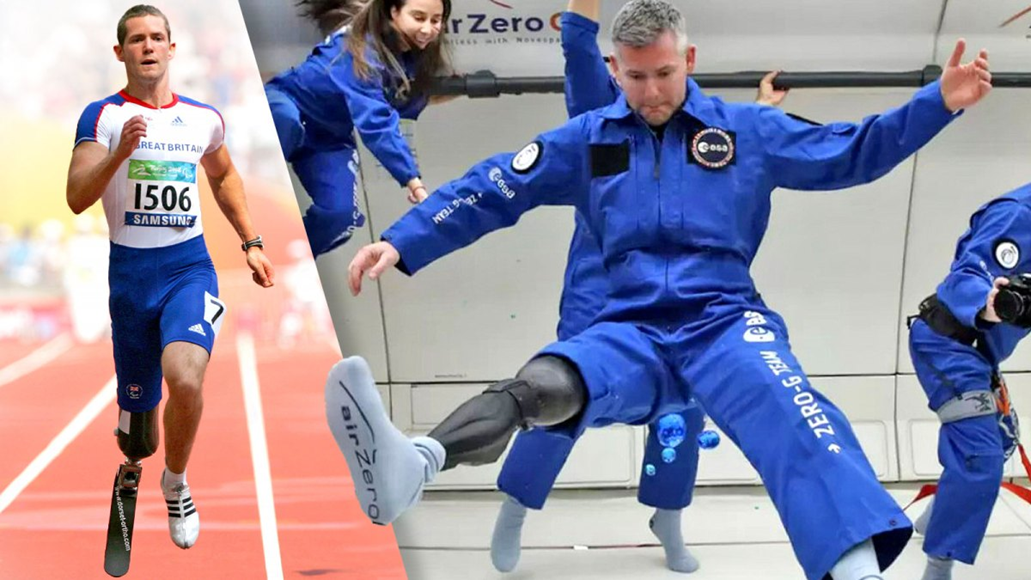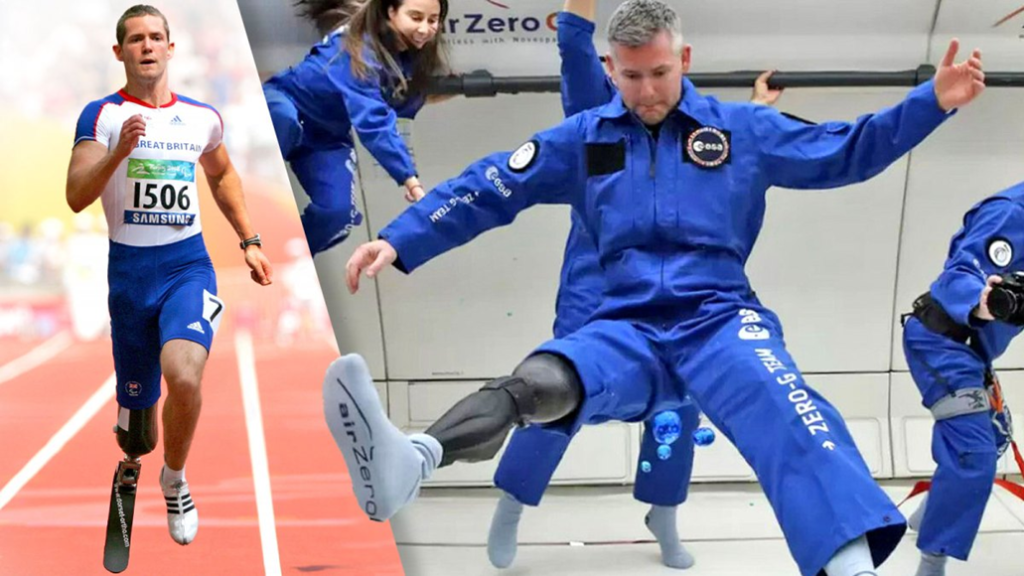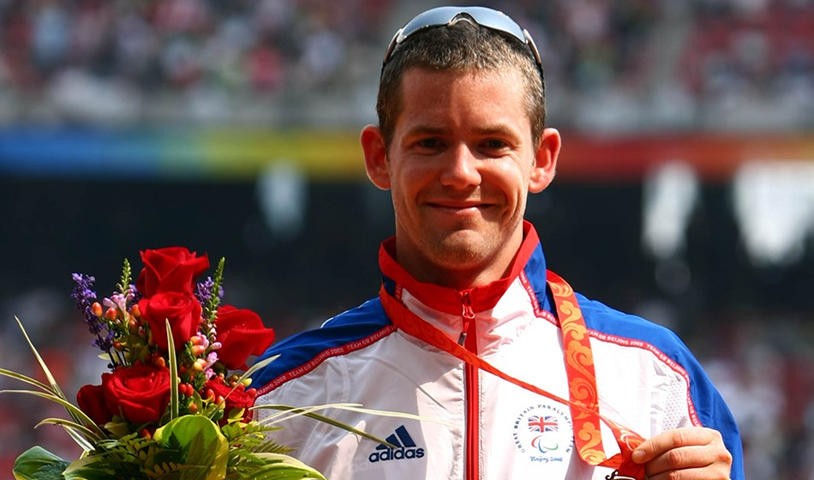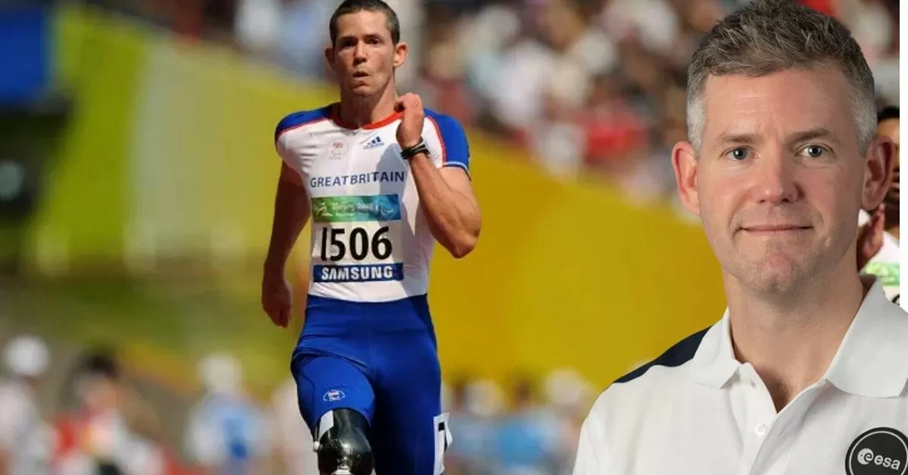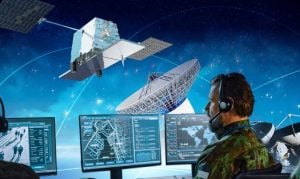John McFall, a former Paralympian for Great Britain, has just become the first astronaut with a disability to receive medical clearance for long-duration space missions. The European Space Agency (ESA) astronaut corps member is now eligible to be placed on and train for a flight to the International Space Station (ISS).
World’s First Astronaut With A Physical Disability | John McFall
Why In News
- John McFall, a former Paralympian for Great Britain, has just become the first astronaut with a disability to receive medical clearance for long-duration space missions. The European Space Agency (ESA) astronaut corps member is now eligible to be placed on and train for a flight to the International Space Station (ISS).
- “This isn’t about me, this is way bigger than that,” McFall said at a media briefing on Friday. “This is a cultural shift. This is something that has not been done before. … I’m proud for me, but I’m proud of the mindset shift that this has achieved.”
Who Is John McFall
- John McFall, 43, hails from Cardiff, UK. At 19, he lost his right leg above the knee due to a motorcycle accident. Demonstrating remarkable resilience, McFall pursued athletics and secured a bronze medal in the 100m sprint at the 2008 Beijing Paralympics. He later transitioned into a medical career, becoming a trauma and orthopaedic surgeon.
- November 2022, McFall became the first person with a physical disability to join the ESA’s astronaut reserve. He took part in the agency’s feasibility study called “Fly!,” which aimed to analyze the possibility of sending astronauts with certain physical disabilities to space.
- In 2024, the study concluded that it is technically feasible for someone with a disability like McFall’s to fully participate in a six-month mission to the ISS, according to a statement from the U.K. Space Agency. After passing all the necessary medical evaluations, McFall has now been personally cleared for such space travel. The green light, however, doesn’t guarantee him a spot on the next mission to the ISS—it puts him on a waiting list.
- “Now he’s an astronaut like everybody else who wants to fly to the space station, waiting for a mission assignment,” Daniel Neuenschwander, director of human and robotic exploration at the ESA, said at the briefing. When McFall does get assigned to a mission, it will likely make him the first person with a physical disability to travel to space.
- “ESA have said that they’re keen to get someone with a physical disability to fly within the lifetime of the ISS, if we’ve demonstrated that it’s feasible,” McFall told Ezzy Pearson for BBC Sky at Night magazine back in September, when he hadn’t been officially cleared yet. The ISS is currently scheduled to be decommissioned around 2030.
- “At this stage, it’s looking very positive.” The feasibility study tested key areas of spaceflight including training, spacecraft and ISS operations, medical aspects and crew support. It concluded that for people with McFall’s disability, “inclusion in space exploration is achievable without imposing significant financial or operational burdens.”
- Jerome Reineix, study manager for Fly! at the ESA, admitted during the briefing that he’d expected to encounter some technical challenges during the feasibility study. However, “the main difficulty that we faced was not really technical … but was really about the mindsets,” he explained. “People have already a preconception of what a person with a physical disability can achieve, and you have to go again, explain, explain again and demonstrate.”
- McFall’s clearance also comes after President Donald Trump’s recent executive order to eliminate diversity, equity and inclusion (DEI) initiatives within government agencies, including in NASA. All ISS partners, including the U.S., have approved of McFall’s clearance, as Neuenschwander noted at the briefing.
- It remains to be seen how soon McFall can get on a rocket. In the meantime, however, he’s already made history.
- “I have to admit capability was not automatically assumed,” during the feasibility study, McFall said at the briefing. “In my head, capability is automatically assumed. … I hope that through my time here and what we’ve achieved so far that I’ve been able to change that mindset a little bit.”
When Will Mcfall Embark On His Mission
- While McFall has been medically certified for spaceflight, he has not yet been assigned to a specific mission. He remains part of ESA’s astronaut reserve, ready for potential future assignments. With the ISS scheduled for decommissioning around 2030, there is a window of opportunity for McFall to participate in a mission before then. Discussions are also ongoing regarding potential involvement in private space missions, such as those organized by Axiom Space.
- This landmark decision not only exemplifies human resilience and adaptability but also signifies a transformative moment in space exploration, promoting inclusivity and challenging preconceived notions about the capabilities of individuals with disabilities.
